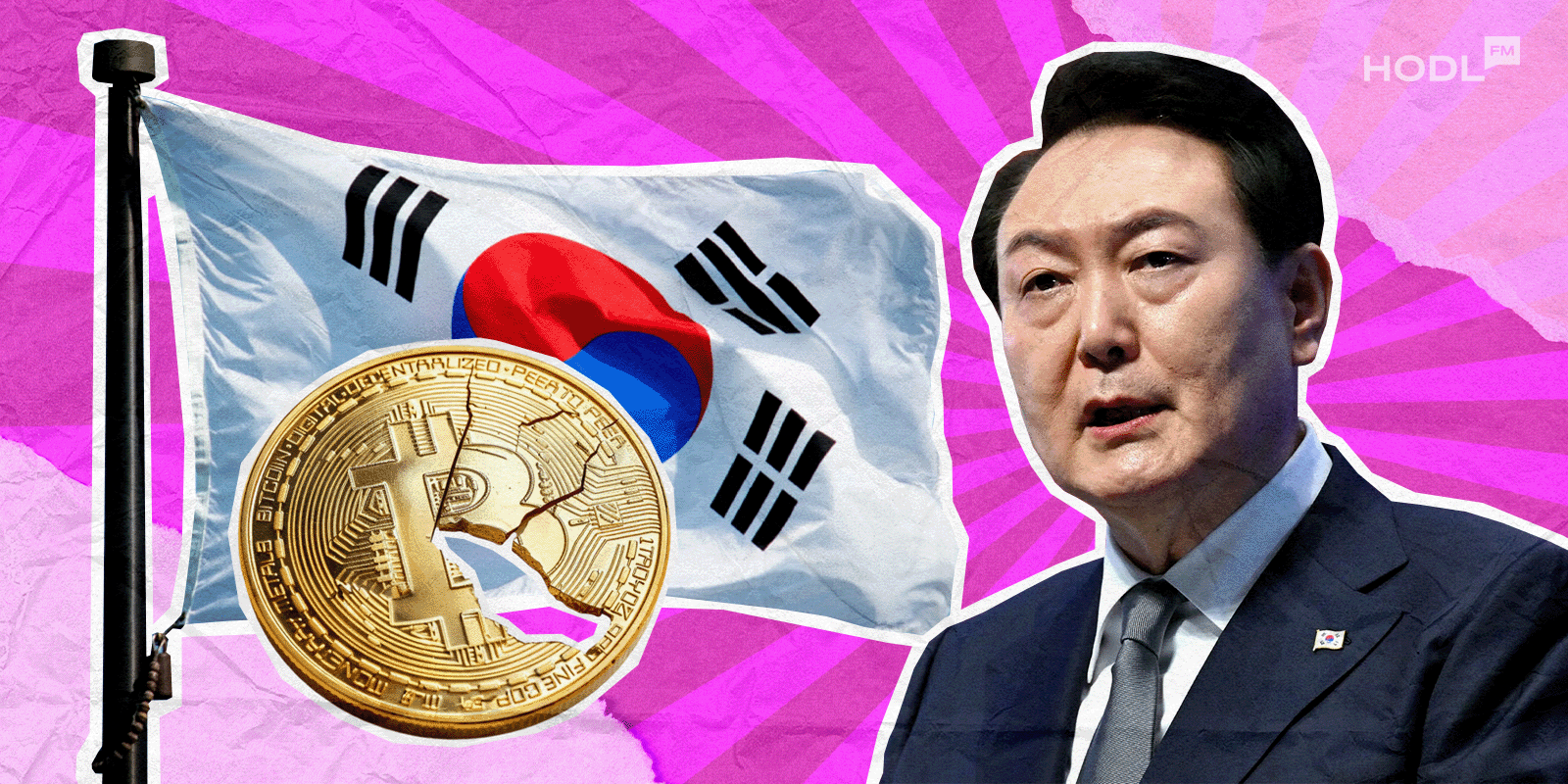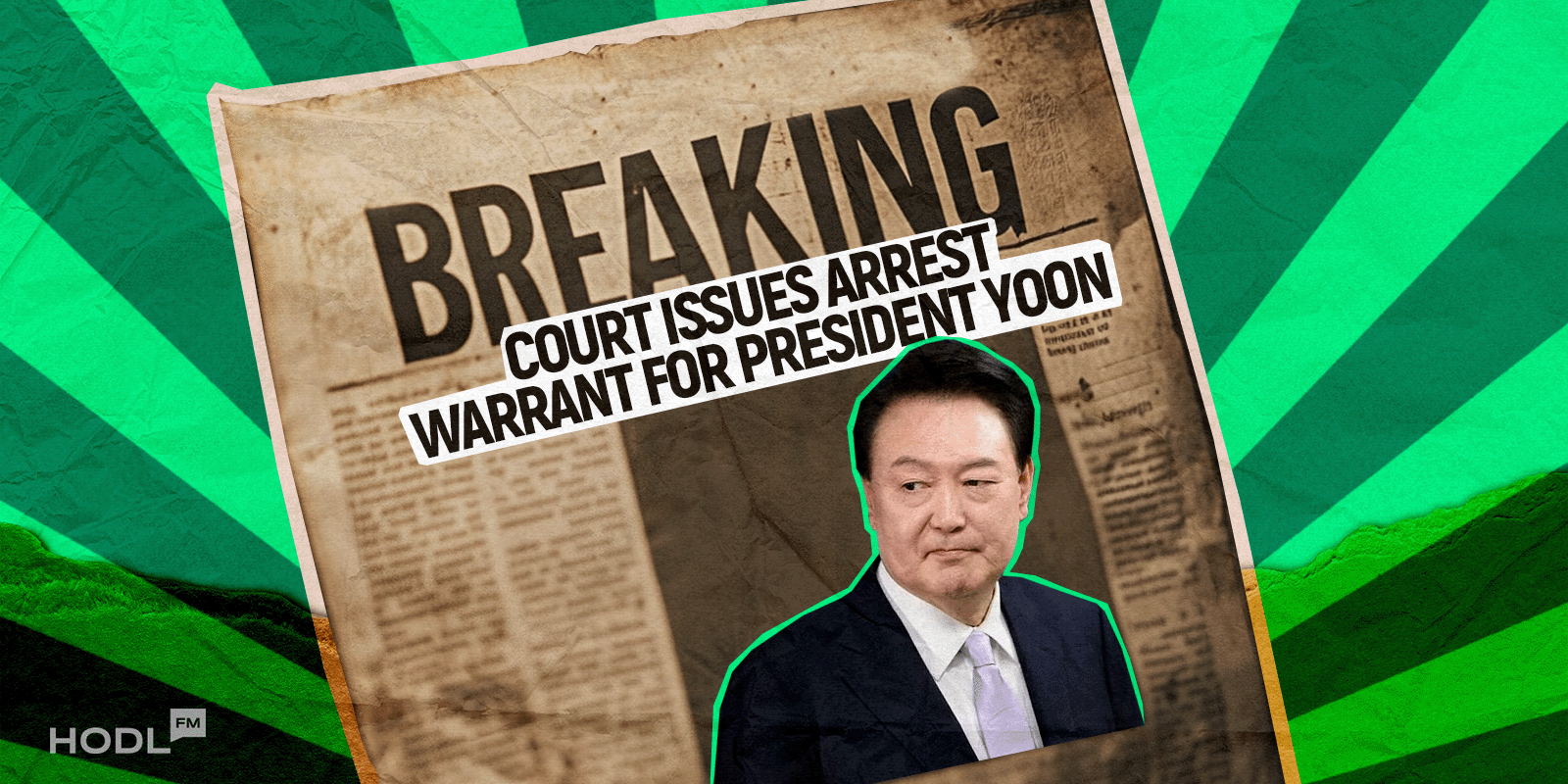The ongoing political chaos in South Korea continues to shake the crypto space with price fluctuations, investor withdrawals, and stalled regulatory discussions. The declaration of martial law and the subsequent impeachments of presidents have halted any meaningful dialogue on crypto regulations and become a catalyst for increased volatility in cryptocurrency prices.
Political Crisis
Events unfolded quickly: In December 2024, President Yoon Suk Yeol attempted to impose martial law under the pretext of protecting the nation from "anti-state elements" and threats from North Korea. The move caused a fierce backlash domestically and internationally. Parliament quickly impeached the president, removing him from office. The situation culminated with a court issuing an arrest warrant for Yoon — an unprecedented moment in South Korea's history.
A South Korean court approved the arrest of impeached President Yoon Suk Yeol over his short-lived imposition of martial law. An arrest warrant for an incumbent president is unprecedented in the country https://t.co/AqAYZLhQ5A pic.twitter.com/YlAuJDq4e3
— Reuters (@Reuters) December 31, 2024
Investigators requested the warrant after Yoon failed to appear for questioning three consecutive times. A joint investigative team filed for the warrant on December 30. A warrant received approval from the Seoul Western District Court on December 31. The CIO said the warrant must be executed within seven days of approval but can be extended if necessary.
These events have triggered widespread discontent and amplified uncertainty across the country. Political instability has sharply reduced investor confidence, prompting many to explore alternatives, immediately affecting the crypto market.
Bad Impact on the Crypto Market
Political instability in South Korea has significantly affected the crypto market, amplifying its sensitivity to external events. The imposition of martial law triggered a massive sell-off, causing Bitcoin’s price on South Korean exchanges like Upbit and Bithumb to fall by $30,000 within hours.
🚨BREAKING: A huge crash is happening in Korean crypto markets, with many coins down 20-40% following the announcement of martial law by the current president.#Bitcoin fell to $79,000. pic.twitter.com/6R4er8GSap
— SolanaFloor (@SolanaFloor) December 3, 2024
But it wasn’t just a local event. Global platforms also felt the ripple effects, with major cryptocurrencies like Bitcoin and Ether dropping by up to 4%. This crash was driven by a liquidity crisis and mass withdrawals from exchanges. However, prices recovered fairly quickly after parliament intervened to demand the lifting of martial law.
The reversal of martial law six hours after its implementation on December 4 stabilized the situation, allowing cryptocurrency prices to rebound. However, the short-term losses once more underscored how dependent the crypto market is on political stability.
The political crisis has slowed down the progress of new cryptocurrency legislation, creating uncertainty for investors and market development. Key bills on virtual asset user protection, ICOs, and real-name trading have been put on hold until at least 2025 as the impeachment crisis takes priority.
On the bright side, postponing a capital gains tax on cryptocurrencies until 2027 offers some stability. However, without clear regulatory frameworks, the institutionalization of cryptocurrencies in South Korea remains challenging.
Shifting Strategies for Investors
This instability has forced many investors to rethink their strategies. South Korean traders have increasingly turned to international platforms and decentralized finance solutions to diversify risks.
In the coming months, South Korea and its crypto community will likely work toward rebuilding trust and laying a new foundation for growth. Despite the setbacks, the resilience of the market and its participants suggests that recovery is on the horizon.

Disclaimer: All materials on this site are for informational purposes only. None of the material should be interpreted as investment advice. Please note that despite the nature of much of the material created and hosted on this website, HODL FM is not a financial reference resource and the opinions of authors and other contributors are their own and should not be taken as financial advice. If you require advice of this sort, HODL FM strongly recommends contacting a qualified industry professional.





